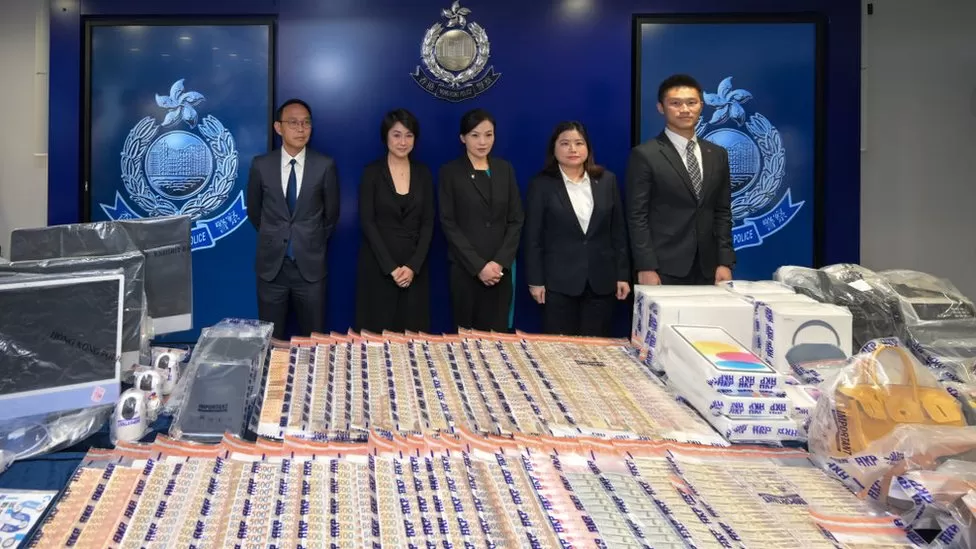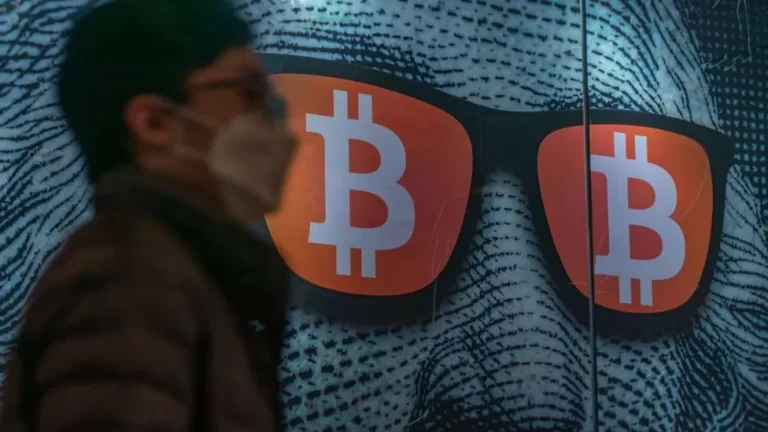Hong Kong police are investigating allegations of fraud against cryptocurrency trading platform JPEX after investors complained of HK$1.3bn ($166m; £134m) in losses.
Eleven people, including popular influencers, were arrested this week after complaints filed by 2,000 people. The case could be one of Hong Kong's biggest fraud cases, local media say.
It also tests new financial regulations as Hong Kong positions itself as a global hub for virtual assets. Last week, Hong Kong's Securities and Futures Commission (SFC) revealed the Dubai-based JPEX had been operating without a license for virtual asset trading.
The platform, on the other hand, said it had “strived to comply” with the local requirement which took effect in June this year, but its efforts were “dismissed or sidestepped with official rhetoric” by the Commission.
Many of the complainants are inexperienced investors who were promised high yields, police said. Aside from tapping influencers, JPEX also advertised widely on Hong Kong's MTR train system with giant billboards.
Footage aired on local TV showed police escorting one of the arrested influencers, Joseph Lam, onto a car following a raid on his house. Mr Lam is a barrister turned insurance salesman who describes himself on Instagram as Hong Kong's “Trolling King”.
In his posts, Mr Lam showed his followers how Bitcoin profits could help them buy a house and grow their social clout. Also arrested was Chan Yee, a YouTube personality with 200,000 subscribers.
In Hong Kong, some trading operations on JPEX have been shut down since the arrests and the city's authorities have appeared to block web access to it. The platform has also said it is working to resolve a “liquidity shortage” as some users have complained that they are unable to withdraw their funds.
Hong Kong Chief Executive John Lee said regulators will “monitor the situation very closely and ensure that investors are sufficiently protected”.
“This incident highlights the importance that when investors want to invest in virtual assets, then they must invest on platforms that are licensed,” he told reporters.
Hong Kong has required virtual asset trading platforms to be licensed by the SFC since the start of June this year. That is an offshoot of the amended Anti-Money Laundering and Counter-Terrorist Financing law from late 2022 that sought to reassert Hong Kong's position as a world financial centre,

Mr Lee said his government would step up investor education so that the public could better understand risks and how platforms are regulated. There have long been concerns about cryptocurrencies due to their lack of regulation and oversight by central banks. Despite this, consumers have been drawn to the appeal of of peer-to-peer digital currencies.
Hong Kong is one of Asia's financial capitals and since its handover to China from British rule in 1997, it has become a gateway for investors to the mainland.
Now, it is seeking to establish itself as a hub for the next generation of internet technologies or Web 3.0, which includes cryptocurrency trading. China has banned cryptocurrencies on the mainland since late 2021, saying it “seriously endangers the safety of people's assets”.
The license requirement for platforms like JPEX is meant to ensure accountability and compensation when needed, Francis Fong, honorary president of the Hong Kong Information Technology Federation, told BBC Chinese.
“It means that if there is supervision, nothing bad will happen.” he said. However, some digital economy experts have told the BBC that existing laws may not be enough to prevent virtual asset platforms from operating illegally and to protect investors from losses.
On Facebook, anguished investors have formed Facebook groups named “JPEX Sufferers”. One group member said he was lured to JPEX because of the ubiquity of its MTR ads. Criticism of the train operator from internet commentator Fung Hei-kin received 3,700 likes and 400 reposts.
According to its website, JPEX is headquartered in Dubai in the United Arab Emirates and is licensed to facilitate trade of digital assets in the US, Canada and Australia. The About Us section of its website shows blurry images of what appear to be the licenses from the three countries.
Founded in 2020, JPEX said it handled $2bn worth of assets and aimed to be among the world's five largest virtual asset exchanges. A check by Hong Kong's South China Morning Post on JPEX's Hong Kong address showed the space was occupied by a co-working firm called Coffee.
The publication quoted the shop's staff as saying that they were unaware of JPEX and that Hong Kong police had checked on the address earlier.
JPEX also has an office in Taiwan, according to local media. However, a recent check showed it to be empty. It had employed popular Taiwanese celebrity, Nine Chen, as its influencer and once sponsored a boxing match on the island.
Mr Chen had posted on Instagram last week, after Hong Kong regulators had said that JPEX was operating without a licence.

“After learning about the JPEX incident, I wanted to understand the situation, but currently I can't contact the relevant people at JPEX,” he said.
“The company is handling other details. If relevant units need to investigate, I will fully cooperate,” he said.
— CutC by bbc.com


